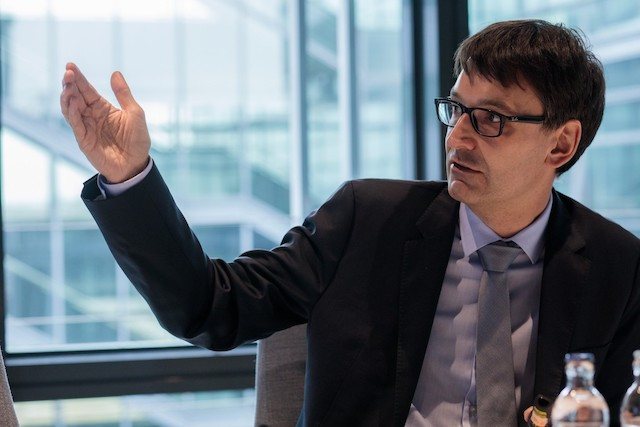Wagener succeeds Romain Bausch, who held the office from 2014-2017 and again from 2019.
“It’s an honour,” said Wagener about the appointment, adding that the CNFP is an important body “that facilitates the debate on the question of public finances. The budget law is the most important law in our democracies. This is where all the public choices lie.”
Founded in 2014, the CNFP is an independent body responsible for monitoring compliance with fiscal rules, the possible triggering of the automatic correction mechanism under EU regulations and assessing the government's macroeconomic and financial forecasts.
The council’s origins lie in the 2008 financial crisis, which resulted in the European Commission drawing up new rules for economic and budget governance among member countries.
EU origins
This overhaul was formalised in the Treaty on Stability, Coordination and Governance in the Economic and Monetary Union, more commonly known as the Fiscal Compact, and its six-pack and two-pack rules.
The aim was to enhance the transparency and coordination of national budgetary decisions, and to move towards a deeper and more integrated Economic and Monetary Union (EMU), capable of better resisting international economic shocks.
As a result of this reform, EU countries had to set up independent national monitoring institutions. The law of 12 July 2014 on the coordination and governance of public finances created the CNFP in Luxembourg.
The organisation includes seven members: two nominated by the government (Délia Nilles and Jean Olinger), two nominated by the Chamber of Deputies (Romain Bausch and Simone Delcourt), and one candidate each put forward by the Court of Auditors (Patrick Graffé), the Chamber of Employees and the Chamber of Civil Servants and Public Employees (Sylvain Hoffmann), and the Chamber of Commerce (Marc Wagener).
A unifying influence
Mandates last for four years. “It has become customary for the incumbent president to hand over mid-term. Which is what Romain Bausch did on 7 December,” said Wagener, whose term will end at the close of 2022.
The council presents two assessments per year. The first analyses public finances in light of the report government must submit to the European Commission as part of the Stability and Growth Pact every year at the end of April. The second analysis is published when the government presents next year’s budget and the multi-year financial outlook in the autumn.
“Our mission is to ensure that the state's fiscal policy is tenable and sustainable. A noble mission, of public interest,” said the new president, but also a mission currently complicated by the covid-19 crisis, which has sidelined budgetary orthodoxy, with the approval of the European Commission.
The CNFP must take this into account in its future opinions, Wagener said. “We must find the right tone, take note of the current situation--declining revenues and rising spending--and ensure that the government strikes the right balance in the medium term to address this deficit without jeopardising the economy. This will be the biggest stake for the years to come.”
How does Marc Wagener see his role as president? “I will act as a unifier. Due to its composition, the board often has divergent views on the tone to be adopted in its opinions. I will make sure to facilitate compromises.”
This article was originally published in French on Paperjam.lu and has been translated and edited for Delano.
